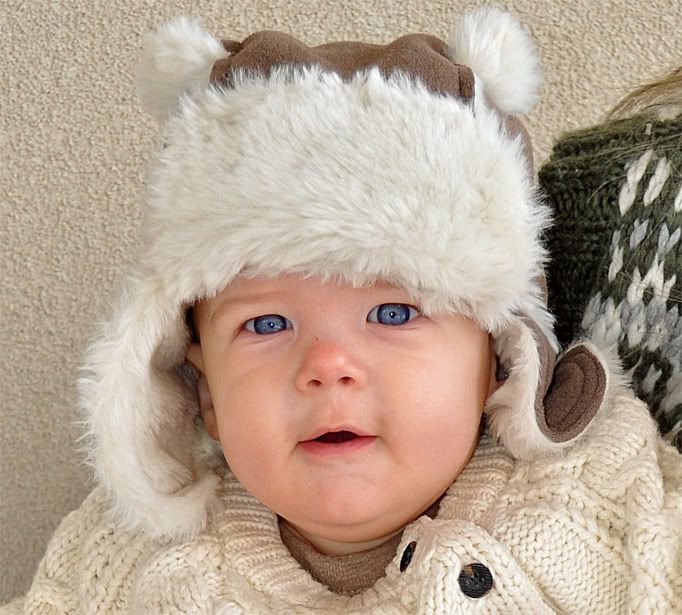What Causes Slow Weight Gain
Several possible factors can cause slow weight gain, from a medical condition to social or financial hardship. Anything that interferes with a childs access to food or ability to digest food can impair their growth. Often it is caused by a combination of factors.
Medical causes:
- Premature birth can make it hard for your child to feed until the muscles they use to suck and swallow fully develop.
- Down syndrome can also interfere with a childs ability to suck and swallow.
- Metabolic disorders like hypoglycemia, galactosemia or phenylketonuria can interfere with the bodys ability to convert food into energy.
- Cystic fibrosis can prevent a child from absorbing calories.
- A food allergy or food intolerance may limit what foods your child can eat without feeling ill.
- Gastroesophageal reflux can cause your child to vomit frequently.
- Anything that causes chronic diarrhea can prevent your child from receiving enough nutrition.
Social and financial causes:
- Parents may not prepare formula correctly or understand how often their infant or child needs to eat.
- Household stress from divorce, death or another disruption can cause a child to stop eating.
- Poverty may make it hard for parents to provide enough food for their children.
How Is Ftt Diagnosed
Weight is the best indicator of nutritional status and you childs weight should be monitored at each clinic visit. Obtaining your childs height is also important however a single measurement of height is less valuable for the diagnosis of FTT than several height measurements over time . Linear growth may be affected in children with malnutrition, but this usually indicates a prolonged period of poor nutrition.
Most children with non-organic FTT present with growth failure in the first year of life and usually come to medical attention by 6 months of age. In children with organic FTT, the time of presentation is more variable and is dependent on the childs underlying medical condition.
When FTT is recognized, your doctor will talk with you about your childs symptoms, obtain a dietary history and perform a physical examination.
Your childs doctor may request that you provide food records for your child and will likely involve a dietician to assess your childs food and nutrition needs. Often, as a first step, an appropriate diet will be instituted with the help of a dietician to make certain that adequate calories are provided to allow for catch-up growth for your child. In the event of difficulties with breast feeding, a lactation specialist may be asked to help. It may be necessary to involve other specialists to assess the developmental stage of your child and/or your childs feeding skills.
Read Also: How To Add Your Newborn To Medicaid
Failure To Thrive In Infants
Failure to Thrive describes an infant or child who does not gain weight at the expected rate. The two kinds of FTT are organic and non-organic. Medical problems such as diarrhea or vomiting that continue may be the cause of organic FTT. If your child has organic FTT, it could be that he or she is not able to take in nutrients from food or formula. Tests will be done to see if there is a medical problem. Sometimes Failure to Thrive has no medical cause and is called non-organic FTT. Infants with non-organic FTT usually begin to gain weight when changes are made in the way the baby is fed, cared for and nurtured.
Read Also: When To Give Bath To Newborn Baby
Vegetarian And Vegan Breastfeeding Mamas
While plenty of vegetarians and vegans get enough of the right nutrients, they do have to take extra care to ensure they get certain vitamins and minerals predominantly found in animal sources, including B12. In this case study, the 12-month-old breastfed baby of a vegetarian mother had B12 deficiency that caused his brain to shrink and not develop properly. In another case, an 8-month-old refused solid foods, but after B12 supplements for both him and mama, his food aversions disappeared. Infants with a B12 deficiency may experience weakness, fatigue, permanent brain damage, and failure to thrive, among other symptoms.
Vegetarian and vegan mothers who plan to breastfeed should consult with their healthcare provider and a lactation consultant to determine whether or not their diet contains enough B12 from non-animal sources. If mama may not be getting enough B12, a supplement may be prescribed for either the mother or the infant.
Physical Or Organic Causes

There are a few reasons why FTT can happen. Sometimes theres a physical or organic reason which causes the baby not to absorb or metabolise nutrients. This means they are unable to use the food theyre eating to fuel their growth.
Common medical conditions causing FTT include:
- conditions which demand more energy cardiac problems, respiratory issues, infection or hormone disorders
Read Also: Where To Buy Newborn Baby Clothes
Read Also: How To Keep A Newborn Awake
What Is Failure To Thrive
When growing kids don’t gain weight as they should, it is called “failure to thrive.”
Failure to thrive is not a disease or disorder itself. Rather, it’s a sign that a child is undernourished. In general, kids who fail to thrive are not getting enough calories to grow and gain weight in a healthy way. When kids can’t gain weight, they also often may not grow as tall as they should.
Kids need to get enough calories to learn and develop well. So kids with failure to thrive might start to walk and talk later than other kids, and can have trouble learning in school.
Try Baby Massage And Chiropractic Care
Massage is soothing and a great way to bond with your baby.
In a 2005 study, premature infants who were given massage had shorter hospital stays and 21-48% greater weight gain than the non-massaged group.
Other researchers have noted that certain brain chemicals released by touch, or others released in its absence, may account for these infants failure to thrive.
Similarly, subluxations, or nerve compressions, in babys spine can cause a whole host of issues. Chiropractic care can fix these subluxations to ease reflux, constipation, digestive issues, and other stressors that cause failure to thrive. Chiropractors can even help correct palate and jaw issues affecting breastfeeding.
Don’t Miss: How To Add Your Newborn To Medicaid
Key Points About Failure To Thrive In Children
-
Failure to thrive is slow physical development in a baby or child. Its caused by a baby or child not having enough nutrition.
-
A child with FTT is at risk for problems such as short height, behavior problems, and developmental delays.
-
FTT has many possible causes. A baby or child may not be getting enough nutrients and calories. Or a baby or child may take in enough food, but not be able to absorb enough nutrients and calories.
-
A baby or child with an ongoing health condition may also need more calories and nutrients than normal.
-
In some cases, a family may not understand what a baby needs. In severe cases, neglect or abuse may lead to FTT if food is kept from a baby on purpose.
-
FTT can be prevented by seeking early help with a childs nutritional needs.
Abnormal Bowel Urination And Digestive Habits
Failure to thrive in children sometimes manifests in digestive habits. If a child isn’t eating properly, they may not have as many wet or soiled diapers as they should throughout the day. Older children may go several hours without using the restroom.
Also, some children may experience digestive troubles, like constipation, diarrhea, nausea, vomiting, or belly pain. Consistent vomiting after eating could also stem from gastroesophageal reflux, making it challenging for a child to get the nutrients they need from food.
Don’t Miss: How Many Ounces Should A Newborn Drink Per Feeding
What This Study Adds
-
Failure to thrive is associated with little reduction in IQ, but some reduction in childhood weight and height, although even this may be exaggerated as studies did not adjust for confounding factors such as parental height and IQ
-
There is little evidence that identifying failure to thrive is predictive of damaging consequences for growth and intellectual development
This conclusion however does not mean that there is no benefit in identifying children who are growing poorly, particularly when there are associated developmental problems or clinical signs and symptoms. Clinical experience suggests that for a small number of children this is a route to the diagnosis of important, remediable organic conditions. A further small proportion of poorly growing children may do so as a result of neglect or the deliberate withholding of food, where poor growth can be an important marker for the need for intervention. Finally, this may be a route by which parents who are having difficulties in the management of feeding, or whose children have more general developmental problems, may access care.
Failure To Thrive Diagnosis And Treatment
Your doctor assesses your child for potential causes of failure to thrive so that they can treat the underlying concern.â
Health problems. If a medical problem is to blame, your doctor wants to diagnose the health condition so that your child can receive appropriate treatment. Approaches used for treating failure to thrive may include: â
- physical therapy
- assistance from a dietician
- a feeding tube if an inability to eat and drink is a factorâ
Environmental concerns. Your doctor may also ask about your home life to pinpoint any environmental factors that contribute. These might include your familyâs eating habits and mealtimes and your childâs routine. It is important to determine whether failure to thrive results from medical problems or factors in the environment such as abuse or neglect.â
Common environmental factors include:â
- a lack of emotional support and love from a caregiver or parent
- rejection or hostility from a caregiver or parent
- inadequate food and unsuitable living conditions
- infections, parasites, or toxinsâ
- poor eating habitsâ
If environmental factors are contributing to failure to thrive, your doctor may provide educational materials to help you with making lifestyle changes.â
It may take some trial and error to come up with a solution that helps your child with their specific needs. In some cases, your child may need to be hospitalized for monitoring prior to more comprehensive treatment.â
Recommended Reading: How Often Should My Newborn Eat
Let Baby Lead With Breastfeeding
Having baby on too strict of a schedule or letting baby sleep through the night too early can cause dehydration, bonding issues, and insufficient weight gain. Babies like to cluster feed at times, like during growth spurts, when they need increased nutrition. Some babies are slow eaters, or mamas flow is slower, and it takes more time to feed. Take cues from your baby and let them decide how much they need and when theyre done.
Which Is A Common Feature Of Failure To Thrive

Symptoms of failure to thrive include: Height, weight, and head circumference do not match standard growth charts. Weight is lower than third percentile of standard growth charts or 20% below the ideal weight for their height. Growth may have slowed or stopped.
Don’t Miss: Does Costco Sell Newborn Diapers
Food Allergies And Sensitivities
If you breastfeed, certain foodsnamely cows milk, soy, eggs, gluten, and shellfishin your diet can give baby digestive issues. Reflux in babies and other allergic reactions can prevent nutrient absorption.
This study found that the vast majority of failure to thrive diagnosis were due to digestive issues, like reflux and enterocolitis caused by milk allergies.
Certain formula ingredients can also cause reflux and allergic reactions for some infants. Conventional formula thats labeled allergy-friendly still has milk protein and often soy in it, which are some of the most common allergens for infants. Switching to a new formula, like this homemade goat milk formula, can be a better option.
What Causes Cerebral Palsy
The cause of CP isnt always known. But many cases happen when a childs brain is still developing, such as before birth or in early infancy. This may be due to:
- infections or other medical problems during a womans pregnancy
- a stroke either in the womb or after birth
- genetic disorders
In rare cases, CP happens because something goes wrong during a childs birth.
Premature babies have a higher chance of having CP than full-term babies. So do other low-birthweight babies and multiple births, such as twins and triplets.
Areas of the brain that affect learning can also be affected. This can lead to learning disabilities. Brain damage also can happen from:
- being shaken as an infant
- an injury from an accident
In rare cases, CP happens after a problem during childbirth.
Dont Miss: What Do You Really Need For A Newborn
You May Like: What Is A Newborn Stem Cell Collection Kit
Little Girl Lost Questions
PART 1- Bringing Home BabyQuestions
PART 2- The DiagnosisQuestions
PART 3- Understanding the CellQuest ions
PART 4- Treatment and PrognosisQuestions
What If Theres No Apparent Cause For Failure To Thrive
Its not always clear what causes a baby to fail to thrive and sometimes no specific cause is found. This makes it difficult for parents who may feel theyre doing all they can to feed their baby regularly and support them to grow.
Its not uncommon for parents to feel stressed and anxious about their babys growth, especially when their baby is diagnosed with FTT. Just as a parents emotional distress can contribute to FTT, parental anxiety is a common outcome when a baby does not grow as they need to.
However, some babies are smaller because of genetics. Parents who are shorter and smaller than average are more likely to have children with the same characteristics.
Don’t Miss: How Many Ounces Newborn Formula
Does Low Weight Gain Mean Your Child Will Always Be Smaller Than He Should Be
This depends on the reason behind his failure to thrive. If FTT is due to a disease that will be with him lifelong, then he may not grow as much as children of his age do. But if it is due to something that can be treated, then his growth may be at par with others. For example, a premature child may gain weight and height after treatment and being fed well.
What Else Should I Know
Kids with CP often need to see many different medical specialists for care. That team may include doctors and surgeons, other providers like physical assistants, nurses, therapists, psychologists, educators, and social workers.
Even if many medical specialists are needed, its still important to have a primary care provider or a medical home. This provider will take care of your childs routine health care and also help you coordinate care with other doctors.
You May Like: What Causes Jaundice In Newborns
You May Like: What To Do If My Newborn Is Congested
How Can I Get My Newborn To Gain Weight
If your babys doctor thinks its necessary, you may have to supplement your baby with additional feedings of either pumped breast milk or infant formula. You can also try to pump and separate your foremilk from your hindmilk. Hindmilk is higher in fat and calories, which can help your baby gain more weight.
How Do You Reverse Failure To Thrive In Adults

Nutritional and vitamin deficiencies diagnosed in patients with failure to thrive need to be treated and monitored. Dietary restrictions should be reduced to encourage a greater variety of food options. In addition, nutritional boosts or supplements with meals can prevent malnutrition in patients with decreased intake.
Also Check: How Much Milk Does A Newborn Need
How Common Is This In My Practice
In a local 2012 survey, about 50% of parents or guardians reported picky eating all the time in their children who were aged 110 years. The prevalence of feeding difficulties was about 15%. FTT is seen in 5%10% of children in primary care settings and in 3%5% of children in hospital settings in the United States.
How Is Ftt Treated
Treatment of failure to thrive depends upon the age of the child, the associated symptoms and the underlying reason for the poor growth. The overall goal of treatment is to provide adequate calories and any other support necessary to promote the growth of your child.
In the event of your child having organic failure to thrive, additional therapy may be needed to treate the underlying medical condition. For example, intestinal disorders may cause poor absorption of the diet and lead to failure to thrive. In this instance, a special diet may be necessary.
Failure to thrive may also develop in twins or triplets, simply because multiple births are more difficult to care for and more demanding to feed. A baby born prematurely is more likely to have failure to thrive because many of the body functions necessary for the proper ingestion and digestion of the diet are immature at birth. Lung problems or heart disease, especially in very young infants, can make feedings more difficult and lead to poor calorie intake and failure to thrive.
You should call your childs health care provider if any of the following occur:
You May Like: How To Get Your Newborn To Breastfeed
